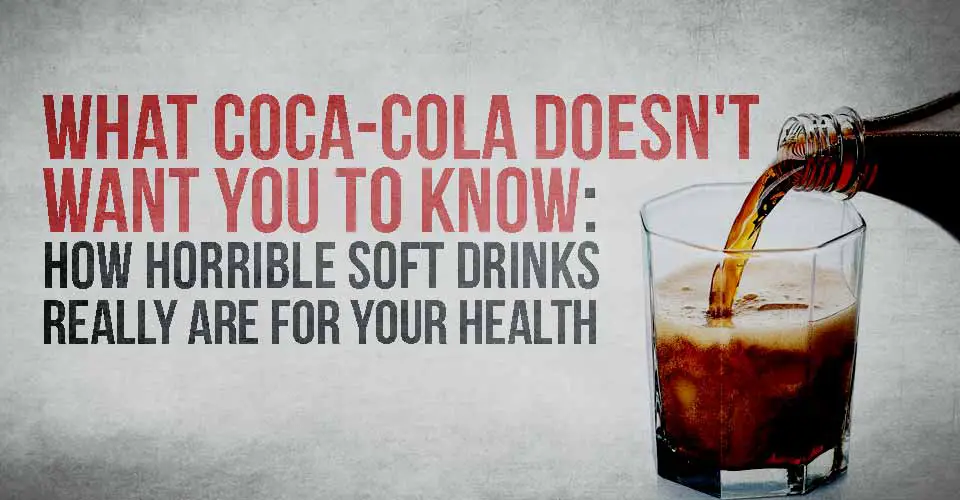
As an avid drinker of Coke, Diet Coke and Sprite, I almost wish I hadn’t seen this video, checked into this research or written this article that you are about to read right now. I’m telling you this so that you can stop reading if you’re as big a fan of soft drinks as I am, because I’m afraid I need to cut them out of my life entirely. Looking into the science behind what soft drinks do to your body has led me to one very simple conclusion: they’re terrible for me. And you. And everyone else on the planet.
So let’s dive into the science, shall we? In order to come to the above-mentioned conclusion I had to be convinced not only that consumption of soft drinks leads to weight gain and that high fructose corn syrup takes a terrific toll on the body, but that soft drinks’ effects on my brain were also pretty significant. Lo and behold, the research came through. Here is how soft drinks are affecting your brain and body:
Mouth: When you start to drink a soft drink the high acid content of the substance begins to erode the enamel on your teeth, and the plaque microorganisms have a field day feasting on the sugars you’re drinking, leading to an increase in risk for cavities.
Liver: High fructose corn syrup is such a dynamically different chemical than plain old sugar -and has been soft drink manufacturers’ go-to for decades instead of sugar because it’s so much cheaper- that our bodies have to metabolize it using the liver. This leads to an increase in liver fat, which increases the risk of heart disease.
Hormone disruption: High fructose corn syrup also disrupts our bodies’ use of the appetite hormone leptin and the sugar-processing hormone insulin, which can increase the risk for diabetes. By disrupting leptin, high fructose corn syrup interferes with our bodies’ ability to tell us we are full.
Weight gain: If you swapped out the daily 8 glasses of water generally recommended for consumption for soft drinks, you add a whopping 5,432 extra calories per week. It takes about an hour of running at eight miles per hour for a 200-lb person to lose 1074 calories, on average. You can do the rest of the math here.
The impact of soda on weight gain is so significant, in fact, that scientists estimate that the increase in soft drink consumption by the American public -about half of us drink at least a glass of soda every day– is responsible for a full one-fifth of the weight gained by Americans between 1977 and 2007.
Nutrition: Fructose and caffeine both interfere with the body’s ability to absorb potassium.
Brain function: this is the part that scared me. As it turns out, soft drink consumption impacts your brain in several ways. Regular soft drinks sweetened with high fructose corn syrup stimulate the brain’s pleasure centers, so once they’ve had a taste of a soft drink, they beg for more when you stop drinking it. Additionally, the artificial sweeteners in diet soft drinks can actually lead to greater weight gain by messing with us in two ways: first, they stimulate our appetites, so we want to eat more. Second, we tell ourselves that we’re not consuming as many calories because we’re drinking a diet soda, which means that we can have more calories by way of food…and since our appetites are already overstimulated, we’re likely to eat more than we should.
Genetics: this was really worrisome too. Scientists have discovered that the consumption of soft drinks shortens a person’s telomeres. Telomeres are caps on the ends of our chromosomes that shorten naturally as we age. Certain behaviors can impact their shortening, however, such as smoking. Studies have shown that the telomeres of a person who consumes 600ml of soda per day are shortened by the same amount as a smoker. So, soda consumption may be as bad for us as inhaling tar fumes.
On the up side, our bodies do have an amazing capacity for recovery. As with smoking, once you quit drinking soda, the deleterious impacts on the body and brain stop as well. One woman drank only soda for 16 years. She was hospitalized at the age of 31 with heart arrythmia and fainting spells, and tests showed she had a severe potassium deficiency. She had no family history of any kind of heart disease. Fortunately, once she stopped drinking soda, she recovered fairly quickly.
That water bottle is looking awfully tempting all of a sudden.


